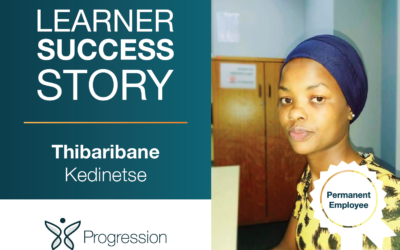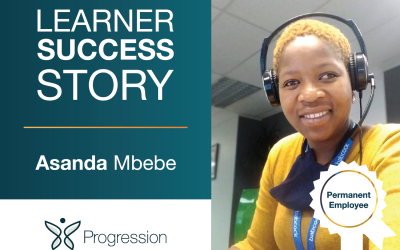SA Taxi and Progression partner to retain top talent in the workplace
31 October 2012 – Although South Africa has come a long way in terms of creating an equitable workforce, there are unfortunately still some prejudices that occur within certain organisations, particularly when it comes to people with disabilities. However, when organisations are dedicated to overcoming these challenges and changing people’s mindsets within their organisations – the results can have an overwhelmingly positive impact.
“This was definitely the case when SA Taxi recently implemented a learnership programme together with the team at Progression,” says Beth Cook, CEO of Progression, an equity owned organisation that offers a wide range of Human Resource Development and Transformation solutions, and one that has pioneered one of the most successful disability equity solutions in the country. “We’ve always wanted to help our clients manage diversity properly and transform the workplace into a comprehensive, engaging and vibrant environment,” says Cook.
Sandra Meso, Training Manager at SA Taxi, a focused partner to the minibus taxi industry that is committed to providing leadership development, says that initially the driver for implementing the learnership programme with Progression – was to meet the company’s legislative requirements, but that SA Taxi also wanted to move beyond compliance.
“The bigger the gap between the rich and the poor, the less likely we’re ever going to build a sustainable economy and inclusive society in South Africa,” says Meso. “For us, the bridge over that gap is through skills development, empowerment, and through positive and sustainable initiatives such as those offered by Progression.”
Progression believes that disability is part of the human spectrum and serves its place in an integrated business environment. Progression has always had a keen eye for spotting talent and intuitively responding to the needs of its many blue-chip clients.
“Choosing the right learner for the right client is challenging, but it can yield such rewarding results,” says Cook. “One learner at SA Taxi proved to be a star player in their Contact Centre, consistently scoring amongst the top three for collecting outstanding debt from clients. Similarly, the second learner placed at SA Taxi also proved to be an asset and although this learner was meant to start work in the IT Department the learner was actually headhunted by the Contact Centre.”
Cook believes part of the success comes down to Progression’s methodology and its commitment to following the guidelines of best practice as laid out in current legislation. “For us, this is enormously gratifying,” she says. “We believe this is our bedrock and it proves that if you do something right from the start, the results are more consistent and lasting. Some 70% of learners who complete our learnership programmes end up finding full-time employment with the company that initiated the learnership; that is encouraging in an economic landscape characterised by high figures of unemployment and attitudes of pessimism at every level.”
“SA Taxi will reap the benefits of the learnership project,” says Meso, “and will increasingly find value in these types of solutions in the future; partnering with Progression has been highly beneficial. Our scorecard has been bolstered in terms of Employment Equity and Skills Development and furthermore, the Progression project will have a positive impact on real lives, showing real results in terms of transformation.”
Meso goes on to say that the myth that people with disabilities are not capable of doing the job is being shattered. “It’s encouraging to see people developing new belief systems, and it’s wonderful to see these learnership candidates flourish.”
Beth Cook agrees with this statement, adding: “Perhaps previously disadvantaged people with disabilities think that without previous business experience, it is unlikely they will succeed or even be given a chance. Our projects can change perceptions—that with a good attitude, commitment and a willingness to learn, success can be achieved. And these successes can challenge, and even change, people’s prejudices around what people with disabilities can and cannot do,” she concluded.






